When Rod Serling entered a Los Angeles party in 1959, a young writer named Charles Beaumont approached him and said that Serling’s most recent teleplay, The Velvet Alley, about a Hollywood writer who lets success get in the way of his better judgment, “…was the worst piece of writing I’ve ever seen.”
Serling responded with a smile, but made note of Beaumont’s brazen honesty.
A writer of fantasy and science fiction, Beaumont’s early life was just as odd as the fiction would later become known for.
He was born Charles Nutt on January 2, 1929 in Chicago, Illinois. Suffering from a severe case of meningitis, Beaumont was forced to rely on his imagination and tales of science fiction as a way to deal with his isolation. An abusive mother oversaw much of his childhood; a woman who frequently dressed him in girls’ clothes and who once killed one of her son’s pets as punishment.
At the age of twelve, he moved to Everett, Washington to be raised by four aunts, women whose idea of fun was to fake their own deaths in order to see the boy’s reaction. It is no wonder Beaumont’s sense of humor would forever run toward the macabre.
Arriving in Los Angeles, Beaumont worked every kind of job imaginable before selling his first story in 1950. In 1955, Playboy published his controversial story called The Crooked Man, which took place in a dystopia where heterosexuality was stigmatized in the same way homosexuality was in the 1950’s.
Rod Serling had been contracted to write 80% of all Twilight Zone episodes, but wanted to open up the remaining 20%.
Producer Buck Houghton arranged a screening of the pilot episode for Twilight Zone for professional writers of science fiction and fantasy in hopes of acquiring some quality talent for the show. Beaumont loved the pilot. He began pitching idea after idea to both Serling and Houghton, many of which were his own already published stories.
Hiring him on a freelance basis, Serling felt that Beaumont’s Velvet Alley comment had helped set the foundation for their relationship, both professional and personal, as one of honesty and professional respect from one writer to another.
Serling was smart enough to realize that when one hired masters in any field, it was best to let them control their own work. Serling ran his show in a “writers first” fashion, a respect for the craft that he himself had never received from his higher ups. As a result, with only a handful of exceptions in the program’s 156-episode run, the script accepted for production was exactly the script filmed.
Beaumont, for instance, reported his feelings of amazement at seeing his first teleplay for the series, Perchance To Dream, being filmed exactly as he had written it. “Nothing was changed. Not one line. Not one word.”
Where as Serling’s teleplays were often laced with social commentary and given an O’Henry twist of irony at the end, Beaumont’s tales often centered around loners, outsiders and men fighting with shadows, both external and of themselves.
These contrasts, along with contributions from Richard Matheson, helped to quickly distinguish Twilight Zone as a diverse show of humor, horror, mystery, fantasy and science fiction. Upon winning his first Emmy for the Twilight Zone, Serling told his trusted writers from the podium, “Let’s carve this up like a Thanksgiving turkey, guys.”
Both Serling and Beaumont were tireless workers, often working twelve to fifteen hours a day in order to finish a piece or keep up with the words pouring out of them. Peers observed that both worked as though they were afraid of running out of time, that fear of dying young was, for whatever reasons, part of both of their psyches.
In preparation for Twilight Zone, Serling had voraciously read all of the science fiction and fantasy short stories that were coming out.
Several times, Beaumont complained to friends that Serling had adapted several of his short stories without even an acknowledgment. Once or twice could be shrugged off as coincidence, but Beaumont felt there were too many to simply turn the other cheek. Finally, he confronted Serling face to face with his accusation. He cited the titles of several of his short stories that he felt Serling had blatantly plagiarized. Serling claimed innocence, so Beaumont, having said his peace, left.
Later that night, a special courier rang Beaumont’s doorbell and delivered a letter, one typed by Serling.
In it, Serling offered no arguments, no defenses, only grief-stricken apologies. He admitted that he had revisited the stories Beaumont had cited and recalled having read them years before, but admitted that whatever theft there was had been completely unconscious and the realization had filled him with painful grief.
Knowing Serling to work late into the night, Beaumont called his friend and boss. Serling answered the phone rather relieved, telling Beaumont he had been pacing in his study awaiting his reaction. “I just got your letter, Rod,” Beaumont said. “I understand your agony and sadness over all of this. Look, you’re paying me enough just to write what I’m writing, and if any of my work slips in through the back door, unconsciously through your brain, and ends up on the screen without credit, forget it. Let’s just let it go at that.”
Beaumont trusted Serling; he believed that the momentary breach of friendship and professional respect had been unintentional and greatly regretted. To friends who later complained that Beaumont was being too complacent, Beaumont responded that he was making more money than he’d hoped to, that his name now carried some weight and that he was being allowed to adapt all of his own work for a new audience. Knowing that his own work was inspiring Serling, someone whom he himself respected and liked, Beaumont was apt to see it as a sort of professional compliment.
Beaumont eventually wrote or was credited with 22 episodes over the series’ five seasons.
Some of his more memorable episodes include The Howling Man (the story of a man who stumbles upon a religious group that has imprisoned a man they believe to be Satan) and Elegy (a tale of three astronauts that land on a meteorite whose inhabitants appear to be frozen in time)
In addition to The Twilight Zone, Beaumont’s resume was one of variety and adaptability as evidenced from 76 teleplays (Alfred Hitchcock Presents, Route 66) to thirteen screenplays and even the occasional comic book (including Mickey Mouse.)
Beaumont died on February 21, 1967, at the age of 38, of what has been attributed to the onset of early Alzheimer’s.



































































































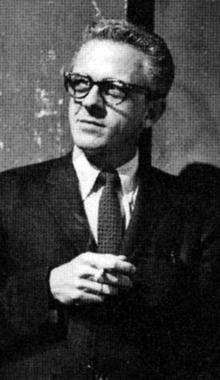
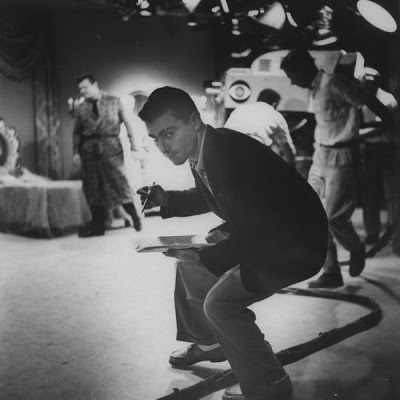
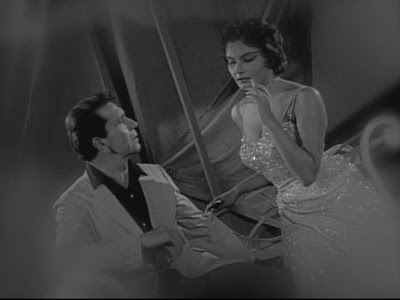
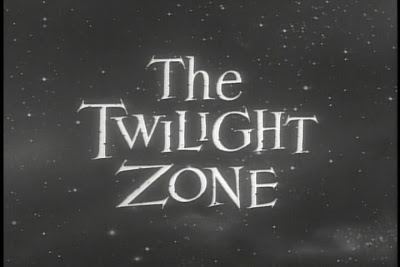
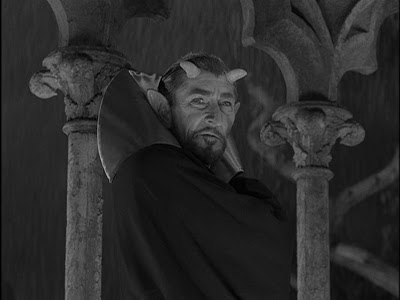
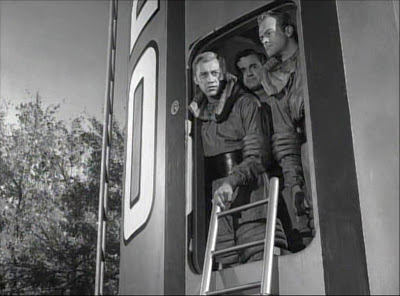









2 Comments